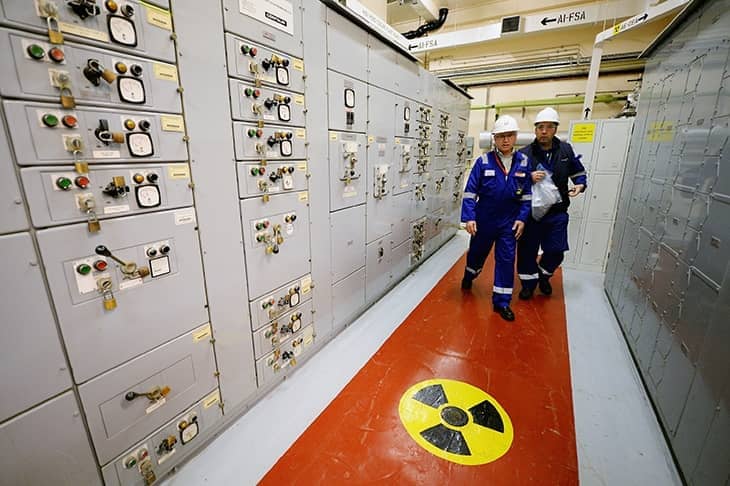So farewell, Hunterston B, the nuclear power plant on the Firth of Clyde that shut last week after 46 years’ service. It will be followed this summer by Hinkley Point B in Somerset and in 2024 by Hartlepool and Heysham, leaving the UK with just four nuclear stations boasting five gigawatts of generating capacity between them — when they’re not suffering extended ‘outages’ for maintenance and repair. That compares with 15 stations and 13 gigawatts, meeting a quarter of UK electricity demand, at the UK’s mid-1990s nuclear peak.
Meanwhile, the 3.2 gigawatt Hinkley Point C, developed by EDF of France and due on stream in 2026, ‘may be delayed after defects were found in a similar reactor in China’, reported New Civil Engineer last month — and Sizewell C in Suffolk, also EDF’s, awaits a government green light. Both projects have Chinese money behind them; but as for the all-Chinese reactor planned to follow at Bradwell in Essex, my bet is it will never happen. And ‘small modular reactors’, capable of powering a million homes each, that Rolls-Royce and others are developing? Probably a decade away.
Nothing new here: the closure of so many nuclear sites before replacement capacity was even off the drawing board is an accidental outcome of decades of ministerial feebleness. Ah, you say, but we have wonderful renewable projects coming on stream — such as the 75-acre solar farm at Spetisbury in Dorset that will soon power offices in the City of London. But solar generation in our climate is roughly one-seventh as efficient as nuclear and Hunterston’s closure alongside the drive to minimise fossil-fuel generation reminds us that we’re increasingly reliant on a very unreliable aspect of nature: weather.
To quote a 2018 BEIS paper: ‘The fluctuating generation of [wind, solar and hydro] technologies contrasts with nuclear, which provides a continuous reliable base-load supply that helps to ensure that demand can always be met.’








Comments
Join the debate for just £1 a month
Be part of the conversation with other Spectator readers by getting your first three months for £3.
UNLOCK ACCESS Just £1 a monthAlready a subscriber? Log in